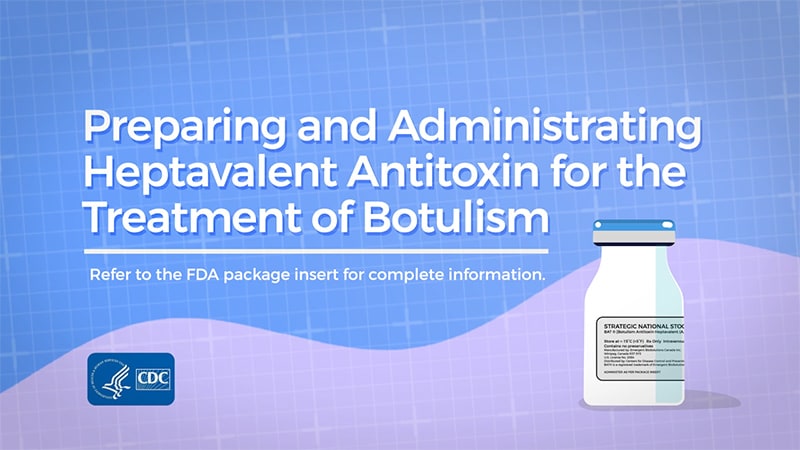Highlights
- Best practices for diagnosing, monitoring, and treating botulism, including during outbreaks
- Special considerations for certain groups of people
- Recommendations for medical and psychosocial supportive care

Resources
Clinical Guidelines for Diagnosis and Treatment of Botulism, 2021
These are the first comprehensive clinical care guidelines for botulism. They include:
- Best practices for diagnosing, monitoring, and treating botulism, including during outbreaks
- Special considerations for infants, children, and people who are pregnant or breastfeeding
- Recommendations for supportive care, including psychosocial support for patients and family members
"Botulism," a CDC-sponsored supplement to Clinical Infectious Diseases
The supplement includes six systematic reviews and other articles that provided the evidence base for the clinical guidelines. Contents include reviews and articles on:
- Clinical presentation
- Effectiveness of antitoxin
- Antitoxin adverse reactions
- Outbreaks
- And more
Preparing and Administrating Heptavalent Antitoxin for the Treatment of Botulism
CDC created this video to guide healthcare professionals on preparing and administering antitoxin for the treatment of botulism. Refer to the FDA package insert for complete information.
More information
Consultations
If you suspect your patient has botulism, immediately call your state public health department. Find your health department's after-hours number.
If no answer, call:
- CDC's Clinical Botulism Service
- 770-488-7100 (24/7)
Publications
See a selection of CDC publications on botulism. Learn about botulism in general or brush up on specific topics.
